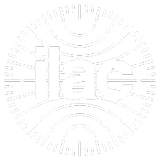Inspection News
There is a strong connection between quality inspection and long-term cost savings?
Many businesses often misinterpret quality assurance (QA) activities as an additional expense, leading to resource wastage. However, in reality, QA plays a pivotal role in cost-saving for businesses in the long run. This article delves into the intricate connection between quality assurance and cost reduction, empowering businesses to recognize the significance of investing in this crucial activity.
1. Benefits of Quality Assurance
Quality assurance offers a multitude of benefits to businesses, including:
-
Enhanced Product and Service Quality: QA facilitates the timely identification and rectification of defects and errors during the production and service delivery processes, leading to superior product and service quality for customers.
-
Increased Customer Satisfaction: High-quality products and services foster customer satisfaction, enabling businesses to effectively attract and retain customers.
-
Minimized Product Defect-Related Losses: QA helps mitigate the risk of product defects, thereby minimizing losses associated with defective products, such as compensation costs, product recalls, and reputational damage.
-
Improved Operational Efficiency: Stringent quality control reduces resource wastage, enhancing the efficiency of manufacturing and business operations.
-
Elevated Competitive Edge: Superior product and service quality coupled with a strong brand reputation empower businesses to strengthen their competitive position in the market.
2.The Link Between Quality Assurance and Cost Saving
It is evident that quality assurance delivers numerous advantages to businesses, contributing to long-term cost reduction. Here are some specific connections:
-
Reduced Repair and Compensation Costs: Thorough quality checks prior to product release minimize the likelihood of product defects, consequently lowering repair and compensation expenses for customers.
-
Extended Product Lifespan: High-quality products exhibit a longer lifespan, allowing customers to utilize them for a more extended period, saving replacement costs.
-
Minimized Waste: Rigorous quality control practices help reduce waste of raw materials, labor, and energy during the production process.
-
Enhanced Labor Productivity: By minimizing product defects, QA contributes to improved labor productivity, leading to cost savings in labor expenses.
-
Increased Marketing Effectiveness: A strong brand reputation built on high-quality products and services enables businesses to optimize marketing expenditures.

3. Illustrative Example
Company A specializes in manufacturing electronic devices. Initially, Company A placed minimal emphasis on QA activities, resulting in a high rate of defective products. The company incurred substantial costs for repairs, compensation, product recalls, and reputational damage. Upon implementing stringent QA procedures,
Company A witnessed a significant decline in product defect rates, leading to substantial long-term cost savings. Additionally, the company’s enhanced product quality and strong brand reputation attracted a wider customer base, boosting revenue and profitability.
Quality assurance not only elevates product and service quality but also plays a critical role in long-term cost reduction for businesses. Companies must recognize the importance of investing in QA activities to enhance their competitive edge and achieve sustainable growth.
If you need professional quality control inspection services, contact VIS today! We ensure your product quality every step of the way!











